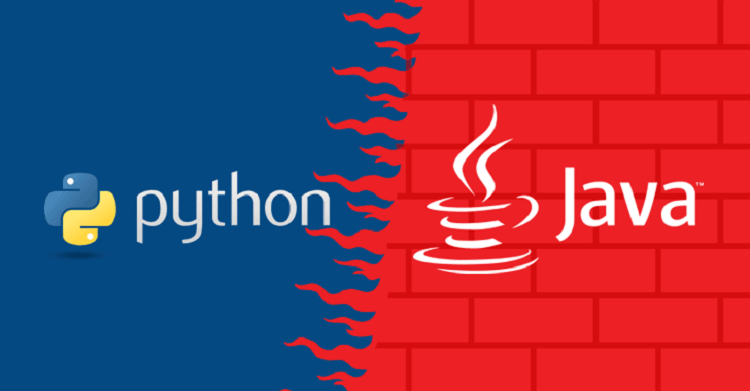
Choosing Between Python and Java: Which Should I Learn ?

In the matchup of Python versus Java you’ll find that both are useful in web development, and each has pros and cons. Read on to discover which language might be best for you to start learning.
Java and Python are two of the most popular programming languages. Of the two, Java is the faster language, but Python is simpler and easier to learn. Each is well-established, platform-independent, and part of a large, supportive community. But that is where the similarities end. When you’re considering Python versus Java, each language has different uses for different purposes, and each has pros and cons to consider.
Java: The faster path
When it comes to sheer speed, Java is a clear winner. According to Stack Overflow, this general use, compiled language, is the fifth most commonly used programming language. It's also the third-most in-demand programming language that hiring managers look for when hiring candidates, according to HackerRank. Several factors are driving Java's continued popularity, primarily its platform independence and its relative ease to learn.
What is Java?
Java is a programming language and platform that has been around since 1995. Since its release, it has become one of the most popular languages among web inventors and other rendering professionals. It's a general- purpose, object- acquainted language. Unlike Python, Java is a collected language, which is one of the reasons that it’s your briskly option.
When you program with collected languages like Java, the coding gets directly converted to machine law. That lets the processor execute much more snappily and efficiently while giving you increased control over tackle aspects like CPU operation. Other exemplifications of collected languages include C and C, Rust, Go, and Haskell.
Java is extensively used in web development, big data, and Android app development. It has also been gaining traction when used in pall development and the Internet of effects( IoT). Java is also helpful for working on enterprise- position web operations and microservices. A variety of associations use Java to make their web operations, including those in health care, education, insurance, and indeed governmental departments. Some of the big names using Java moment include NASA, Google, and Facebook.
Advantages of Java
Speed and effectiveness are two of the big draws of using Java. It's also one of the rendering languages considered to be easy to learn. Because numerous of the processes of this high- position language run automatically, you will not have to do a violent study of how everything works as important as you would with a low- position language. You should be suitable to master it fairly snappily depending on how important time you can devote to literacy and rehearsing.
Other advantages of using Java include the following
It's simple. The syntax is straightforward, making it easy to write. It's not as complex as languages like C, and it uses automatic memory allocation.
It’s platform independent You can use Java on multiple types of computers, including Windows, iOS, Unix, and Linux systems, as long as it has the Java Virtual Machine( JVM) platform.
It’s object acquainted Because you produce classes containing data and functions and objects that belong to those classes, it offers a more intuitive approach for big design development. It also provides inflexibility and easier troubleshooting, and the capability to exercise the law.
It has a large global community This is helpful when you are learning Java or should you run into any problems.
It supports multithreading. When you use Java, you can run further than one thread at a time. When running multiple vestments, they partake in a common memory area to increase effectiveness and performance.
It’s secure Java avoids using unequivocal pointers, runs inside a virtual machine called a sandbox, uses byte- law verifier to check for illegal law, and provides library- position safety along with Java security package and run- time security checks.
Disadvantages of Java
Before deciding whether Java is the right programming language for you to start with, it’s essential to consider its sins. One of the main downsides to using Java is that it uses a large quantum of memory — vastly further than Python.
also, Java manages its memory through scrap collection, which happens once the operation you ’re working on no longer references the object. Java’s scrap collector clears it from memory, but during the process, other vestments have to stop while the scrap collector works. The step impacts the overall performance of the operation.
Other disadvantages include
It does n’t offer control over scrap collection As a programmer, you wo n’t have the capability to control scrap collection using functions like free() or cancel().
It has a lot of words Although Java is simple, it does tend to have a lot of words in it, which will frequently leave you with complex, lengthy rulings and explanations.
It does not have a native look when you use it for desktops Java has multiple graphical stoner interface( GUI) builders, but they are not the stylish if you are creating complex UI on a desktop. Java is weaker when you are using it for desktop versus mobile when it comes to stoner experience and stoner interface. While there are numerous GUI builders to choose from, you will need to do a lot of exploration to find the right bone for your design.